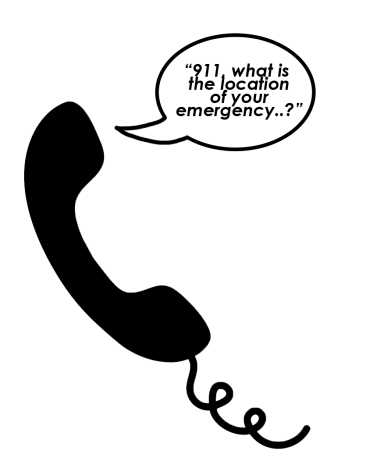OPINION | Too little, too late: Where Mayor Cantrell’s new dispatch program fails
August 26, 2021

In the United States, police departments have faced harsh criticism for being ill-equipped to handle mental health emergencies. Doctrines such as the “sheepdog mentality” train law enforcement officers to be prepared for violence at a moment’s notice — which can lead to disaster in a mental health crisis. In a press conference on Aug. 20, New Orleans Mayor LaToya Cantrell announced her intention to address the issue of mental health via The New Orleans Alternative Dispatch Pilot Program. This program, which will allow 911 dispatchers to include mental health professionals on emergency calls, seeks to provide real-time support to people undergoing a mental health crisis.
“When your house is on fire, you call 911 and you get the fire department, because that is the type of emergency they’re experts at,” New Orleans Health Director Jennifer Avegno said. “When there is a violent incident, you call 911 and you get our fine New Orleans Police Department. If you’re having a heart attack, you want EMS. What we don’t have, and where the emergency system falls apart, is when it is an emergency outside of those specific types … Deploying our other agencies simply does not meet the needs of that person or their family, and in some cases can actually make things worse.”
The program also received support from New Orleans Chief of Police Shaun Ferguson, who said “Violent crime is [NOPD’s] number one priority, so we are excited that this initiative has begun. We will continue to work with our public safety partners to assess, evaluate, and determine what ways we can improve this operation.”
But despite receiving the support of city officials, this new dispatch program fails to address the issue of mental health crises on a wide enough scale. Counseling is only available to callers in the Third District, and their counselors are not physically deployed in the same sense that police, firefighters, or emergency medical personnel would be. Instead, a counselor’s presence is limited to the call, so that they may help dispatchers determine the response by emergency services. While their inclusion in 911 calls may resolve the situation prior to deployment of emergency services, some crises will receive physical responses. When that response comes from law enforcement officers, who are trained for violent crime response, the outcomes can be tragic.
Approximately 10% of all 911 calls concern mental illness, as well as 22% of cases where on-duty police used lethal force. In the field, nearly a quarter of people shot by American police had a mental illness. This pilot program does nothing to change that number. It does not train officers in de-escalation, it does not physically deploy mental health professionals, and counselors cannot communicate with the victim of any mental health crisis unless said victim has called 911.
While this program has the potential to do good, and tailoring the response to a specific emergency is certainly not a bad thing, it is a Band-Aid on a problem caused by the emergency response system’s failure to address mental health. In the future, if this program is extended to the rest of New Orleans, perhaps some of these flaws will be addressed — but for now, it’s a surface level solution to a problem that runs very deep.






















Leave a Comment